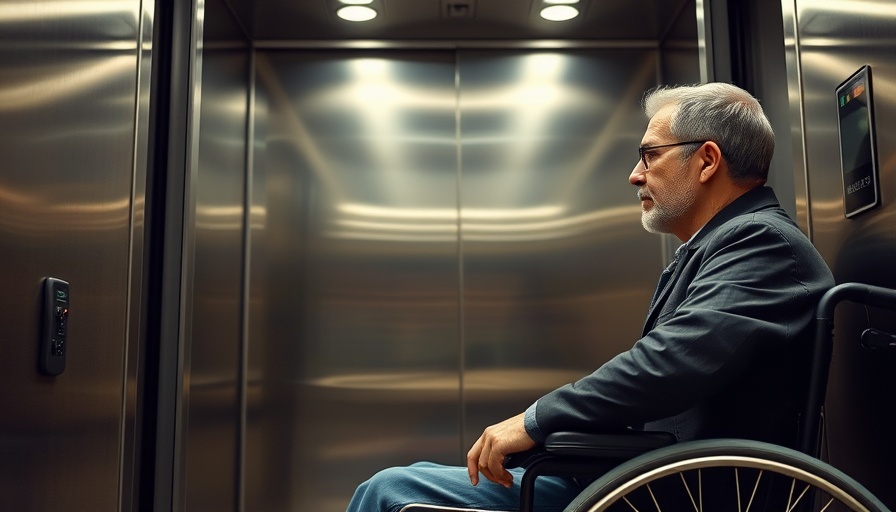
Ex-Oilers Player’s Struggles Highlight Community Spirit
In a heartwarming story emerging from southwest Houston, former Houston Oilers football player Bobby Simon recently captured local attention for the immense community support he received amid personal struggle. Simon, confined to a wheelchair due to health complications, faced significant challenges when both elevators in his apartment complex at Creekbend Gardens went out of service for an extended period, leaving him stranded on the upper floors. This unfortunate situation spotlighted a broader issue of accessibility and the community's commitment to ensuring all its members receive the support they need.
A Picture of Perseverance and Sympathy
Not long ago, first responders were called to assist Simon, carrying him up three flights of stairs while still in his wheelchair. This poignant scene has resonated with many as it not only depicted Simon's physical challenges but also showcased the compassion and quick action of those around him. Fellow residents and local community members rallied to assist Simon in any way possible, turning a moment of distress into a powerful display of human kindness.
Community Response to a Broken System
The situation at Creekbend Gardens is not just a random occurrence but indicative of the larger systemic issues surrounding public infrastructure in Houston. The failure of elevators in an apartment complex, especially one housing vulnerable populations, is a significant concern. During the ongoing maintenance delays, residents began to voice their frustrations, pushing for urgent repairs not only for Simon but for others who face similar circumstances. This incident has revived discussions about aging infrastructure across the nation, particularly in communities with a higher demographic of seniors and disabled individuals.
Broader Implications for Accessibility
This case serves as a vital reminder of the ongoing necessity for accessible housing structures in the face of inadequate maintenance. Access plays a crucial role in the quality of life for people with disabilities, and the lack of functional elevators is a significant barrier to independence for Simon and others like him. As advocates for public policy often stress, ensuring accessibility isn't just about compliance; it's about dignity and respect for all community members. These struggles call for systemic changes that not only address immediate repairs but also pave the way for thoughtful design in residential buildings.
As Repairs Commence, Hope Springs Eternal
Following the media coverage of Simon's predicament, significant community pressure has led to property management hastening repairs. Though awaiting the repairs has been an arduous journey, hope is emerging for Simon and fellow residents, who now look forward to more accessible living conditions. The commitment shown by residents and local responders illustrates a strong community spirit that transcends boundaries, affirming that in times of adversity, a community can come together to uplift its members.
Future Trends: The Role of Community Support
As we look to the future, Simon's story may serve as both a cautionary tale and a source of inspiration. It urges both public officials and private sectors to understand the significance of maintaining accessibility, especially in multi-story residential buildings. This incident may also inspire community organizations to become more proactive in advocating for renovations and enhancements to public infrastructure, ensuring that all residents feel safe and connected.
Take Action in Your Community
The uplifting conclusion drawn from Bobby Simon’s story is not just about resolving a pressing issue—it is also about fostering a proactive community approach. Residents, advocates, and local leaders can take inspiration from this incident, leveraging it to prompt dialogues about infrastructure and accessibility in their neighborhoods. Engaging with local officials, starting petitions, or connecting with advocacy groups can all be steps toward ensuring that all individuals, regardless of ability, have the right to accessible and safe living conditions.
 Add Element
Add Element  Add Row
Add Row 



Write A Comment